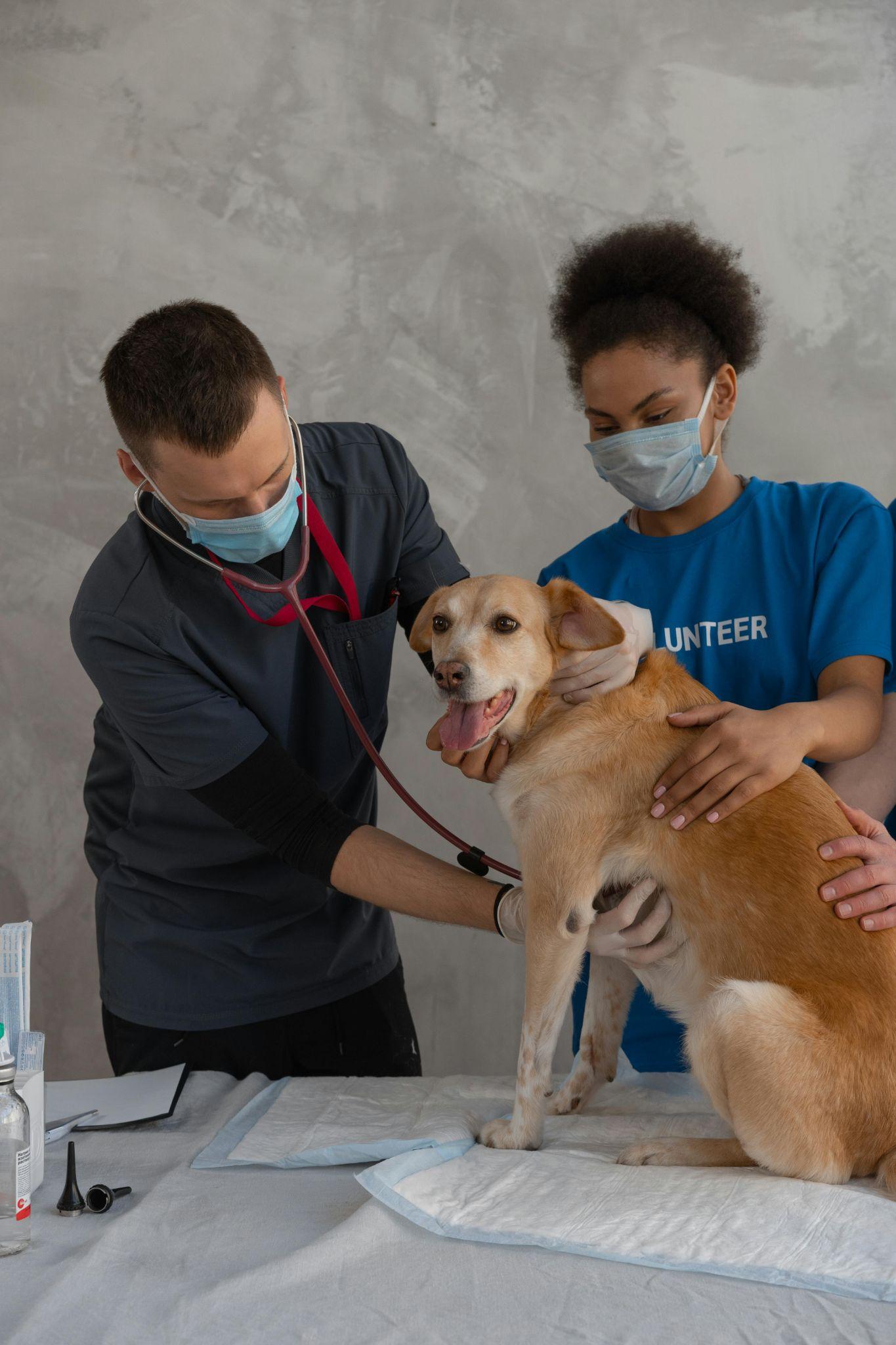Understanding Pet Vaccinations
Vaccinations are a cornerstone of responsible pet ownership. They protect your furry friends from various infectious diseases and contribute to the overall health of the pet population. This comprehensive guide will delve into the essential aspects of pet vaccinations, helping you understand their significance, the types available, and how to ensure your pets receive the appropriate vaccines. 
The Importance of Vaccinations
Understanding pet vaccinations is vital for several reasons:
- Disease Prevention: Vaccinations can prevent serious and often deadly diseases in pets, such as rabies, distemper, and parvovirus.
- Herd Immunity: A significant number of vaccinated pets in a community creates herd immunity, reducing the likelihood of disease outbreaks.
- Cost-Effective: Preventing disease through vaccination is often more economical than treating a sick pet.
- Legal Requirements: Some vaccinations, like rabies, are mandated by law in many areas. https://truepetslove.com/product/seresto-dog-collar/
Why Should You Vaccinate Your Pet?
Not only does vaccination safeguard your pet’s health, but it also promotes public health. Unvaccinated pets can carry diseases that might be transmitted to other animals and even humans. By vaccinating your pet, you are playing a vital role in maintaining the well-being of the broader community.
Essential Pet Vaccines
Vaccinations are generally categorized into two groups: core vaccines and non-core vaccines. Understanding the differences between these types will help you ensure that your pet is protected against the most common and severe diseases.
Core Vaccines
Core vaccines are essential for all pets, regardless of their lifestyle. They are universally recommended and protect against severe diseases.
Common Core Vaccines for Dogs:
- Rabies: A viral disease that affects the central nervous system and is transmissible to humans. Vaccination is legally required in many areas.
- Canine Distemper: A highly contagious viral disease affecting the respiratory, gastrointestinal, and nervous systems.
- Canine Parvovirus: A severe viral infection that primarily affects puppies and can be fatal.
- Canine Adenovirus: Protects against infectious canine hepatitis, a disease that affects the liver.
Common Core Vaccines for Cats:
- Rabies: Similar to dogs, cats require rabies vaccination, which is also legally mandated.
- Feline Viral Rhinotracheitis: A highly contagious viral infection causing respiratory illness in cats.
- Feline Calicivirus: Another virus that causes respiratory disease, often in conjunction with rhinotracheitis.
- Feline Panleukopenia: A viral disease that can be fatal, particularly in kittens.
Non-Core Vaccines
Non-core vaccines are recommended based on your pet’s lifestyle, risk of exposure, and geographic location.
Common Non-Core Vaccines for Dogs:
- Bordetella Bronchiseptica: Recommended for dogs that are frequently boarded or participate in dog parks.
- Lyme Disease: Important for pets in areas where ticks are prevalent.
- Leptospirosis: Recommended for dogs that may come into contact with contaminated water or wildlife.
Common Non-Core Vaccines for Cats:
- Feline Leukemia Virus (FeLV): Recommended for cats that go outdoors or live with other untested cats.
- Chlamydia: Often recommended for multi-cat households, especially in shelters.
Understanding the Vaccination Schedule
Developing a vaccination schedule tailored to your pet’s needs is crucial for ensuring they receive essential pet vaccines at the right time. Here’s a general guideline for vaccination timelines: https://truepetslove.com/product/amazon-pet-carrier/
Puppy and Kitten Vaccination Schedule
- 6-8 Weeks: First round of core vaccines (DAPP for dogs, FVRCP for cats).
- 10-12 Weeks: Second round of core vaccines (DAPP for dogs, FVRCP for cats) and the first rabies vaccination.
- 14-16 Weeks: Third round of core vaccines (DAPP for dogs, FVRCP for cats) and final rabies vaccination.
- 6-12 Months: Booster shots for all core vaccines.
Adult Dog and Cat Vaccination Schedule
- 1 Year: Booster for core vaccines.
- Every 1-3 Years: Depending on the vaccine, your veterinarian will recommend boosters to maintain immunity.
Understanding Pet Vaccinations and Side Effects
While vaccinations are essential, they can occasionally lead to side effects. Understanding pet vaccines includes being aware of potential reactions:
Common Side Effects
- Mild Fever: Some pets may experience a slight increase in body temperature.
- Swelling at Injection Site: A small lump may form where the vaccine was administered.
- Lethargy: Temporary fatigue is common after vaccination.
Rare Side Effects
In rare cases, pets may have more severe reactions:
- Allergic Reactions: Symptoms can include difficulty breathing, hives, or swelling of the face.
- Autoimmune Disorders: Some pets may develop immune-mediated diseases after vaccination, though this is extremely rare.
What to Do in Case of Side Effects
- Monitor your pet for any unusual behavior after vaccination.
- Contact your veterinarian if you notice severe reactions or prolonged side effects.
Tips for a Smooth Vaccination Experience
Ensuring a stress-free vaccination experience can help both you and your pet. Here are some tips:
- Choose the Right Time: Schedule appointments when your pet is usually calm and relaxed.
- Bring Comfort Items: Toys or blankets can help soothe your pet during the visit.
- Stay Calm: Your pet can pick up on your emotions, so remaining relaxed can help ease their anxiety.
- Post-Vaccination Care: Provide a comfortable environment at home after vaccination to help your pet rest and recover. https://truepetslove.com/
Understanding pet vaccinations is essential for any responsible pet owner. From protecting against deadly diseases to complying with legal requirements, vaccines are a vital part of your pet’s health care. This guide highlights the importance of core and non-core vaccines, the vaccination schedule, potential side effects, and tips for a smooth experience.
By prioritizing your pet’s vaccinations and staying informed, you can help ensure they lead a healthy, happy life. Remember, your veterinarian is a valuable resource for any questions or concerns regarding your pet’s vaccination needs. Keeping your pet up to date with their vaccines is not just about their health; it’s also about contributing to a healthier pet community.
